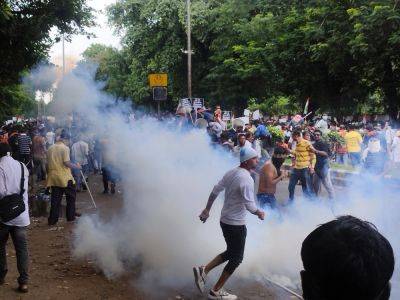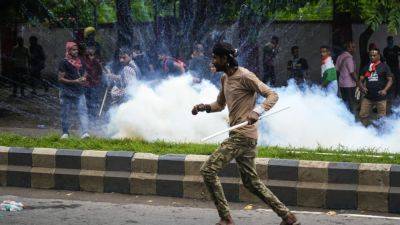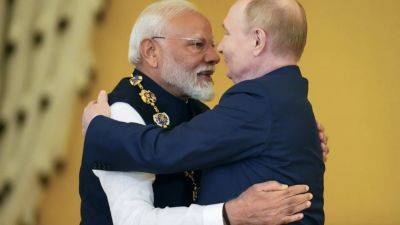Hasina, floods, visas: What’s troubling India-Bangladesh relations?
Bangladesh’s opposition demands Sheikh Hasina be extradited from India and tensions sour following her overthrow.
Last September, Indian Prime Minister Narendra Modi hosted his Bangladeshi counterpart Sheikh Hasina as a special guest on the margins of the G20 Summit in New Delhi. It was a gesture of warmth towards a neighbour that India viewed as an especially close partner.
Now, a year later, that proximity to Hasina has turned into a headache for India. Earlier this month, student protests forced Hasina out of power after 15 years. Hasina fled to India.
And weeks after Hasina’s overthrow, anti-India sentiment in Bangladesh remains high — visible in everything from growing calls for New Delhi to extradite Hasina to accusations that India is using visas and water alike to target its neighbour.
Here’s a breakdown of all that is ailing relations between the two countries:
Hasina fled Bangladesh on August 5 by military helicopter and landed at a military base close to New Delhi, where she was greeted by India’s National Security Adviser Ajit Doval. She is since believed to have been living in and around the Indian capital.
But calls for Hasina’s extradition back to Bangladesh are growing.
On Monday, the general secretary of the main opposition Bangladesh Nationalist Party (BNP), Mirza Fakhrul Islam Alamgir, told Indian media that Hasina must be extradited and tried in Bangladesh. Muhammed Quader, the chairman of the Jatiya Party, echoed this demand on the same day. Quader was the opposition leader of the Bangladesh parliament dissolved on August 6.
“India should help Bangladesh seek accountability from her as she has evidently done great deal of harm to Bangladesh,” Alamgir was quoted as saying by Indian media. A slew of






